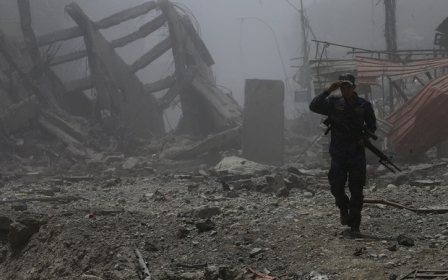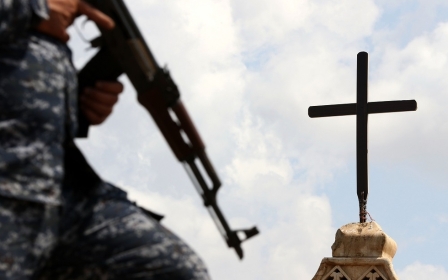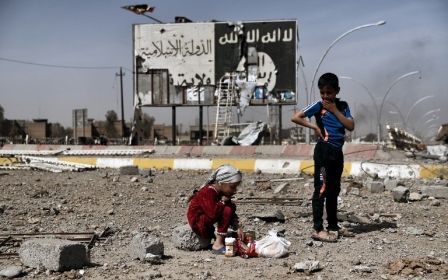'Surrender or die': Iraq launches offensive to take back IS-held city of Tal Afar
Iraqi security forces early on Sunday launched an offensive to take back the city of Tal Afar, their next objective in the US-backed campaign to defeat Islamic State (IS) group militants, Prime Minister Haider al-Abadi said.
In a televised speech, Abadi, dressed in military uniform, announced "the start of an operation to free Tal Afar".
"You either surrender or die," Abadi said, addressing the militants.
A longtime stronghold of hardline Sunni militants, Tal Afar, 80km west of Mosul, was cut off from the rest of the IS-held territory in June.
The city is surrounded by Iraqi government troops and volunteer militias in the south, and Kurdish Peshmerga fighters in the north.
About 2,000 battle-hardened militants remain in the city, according to US and Iraqi military commanders.
The IS self-proclaimed "caliphate" effectively collapsed last month, when US-backed Iraqi forces completed the takeover of the militants' capital in Iraq, Mosul, after a nine-month campaign. Parts of Iraq and Syria remain under its control, especially in border areas.
Retaking Tal Afar, once a key supply hub between Mosul and the Syrian border, would mark another victory in the battle to retake areas of Iraq and Syria seized by the militants in mid-2014.
Ancient city
Once an integral part of the Assyrian empire, Tal Afar's history goes back thousands of years. It is dominated by an Ottoman-era citadel, which was damaged in 2014 when IS militants blew up some of its walls.
In Iraq's northern Nineveh province, it lies some 450km northwest of the capital Baghdad and about 70km west of Mosul, Iraq's second city.
The town had a population of around 200,000 before it fell to IS in the early days of the militants' June 2014 offensive in Iraq. Local officials say it is impossible to know the exact number still living inside the city.
The town was a Shia-majority enclave in the mostly Sunni Muslim area and its population was overwhelmingly Turkmen, one of Iraq's largest ethnic minorities.
Tal Afar's Shia were directly targeted by IS while some members of its Sunni minority joined the militants and went on to form a contingent with a particularly brutal reputation.
On the road between Mosul and the Syrian border, Tal Afar has been a crucial hub in IS supply routes between Iraq and Syria. And while it lacks Mosul's size, the city is of important symbolic value as the last major population centre in northern Iraq still in militant hands.
Iran, the region's main Shia power, and Turkey, which shares a Turkic heritage with the Turkmen, will also be keeping a close eye on developments in the city.
Middle East Eye propose une couverture et une analyse indépendantes et incomparables du Moyen-Orient, de l’Afrique du Nord et d’autres régions du monde. Pour en savoir plus sur la reprise de ce contenu et les frais qui s’appliquent, veuillez remplir ce formulaire [en anglais]. Pour en savoir plus sur MEE, cliquez ici [en anglais].




